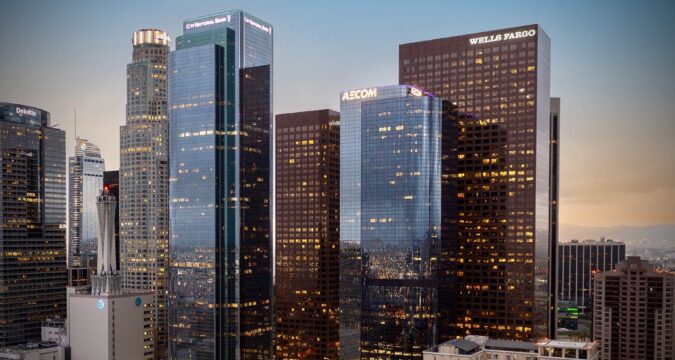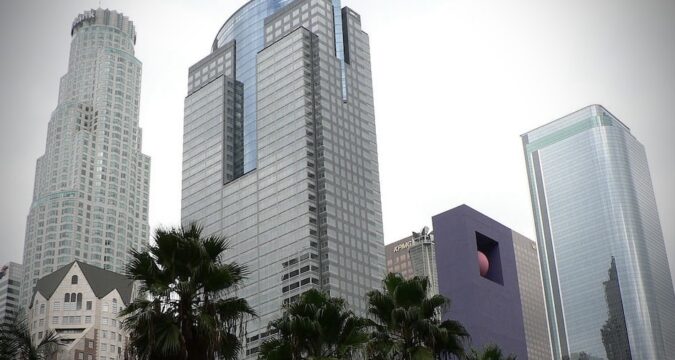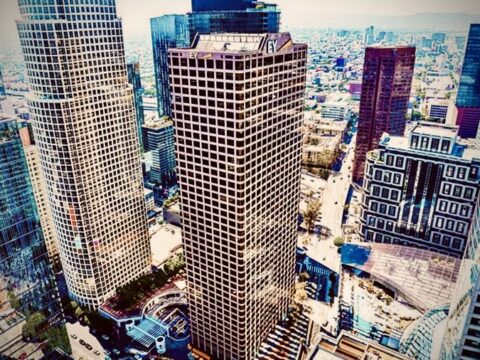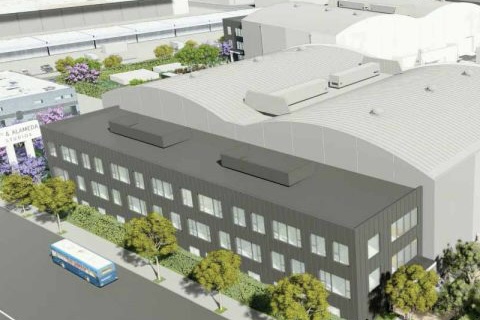
How does a 42-story downtown Los Angeles office tower, hosting some of the world’s most valuable corporation HQs fall into such severe financial distress that it ends up under court-ordered receivership less than 10 years after its last sale?
In 2017, 1 Cal Plaza, located at 300 S Grand is a key component of the California Plaza was acquired by a partnership between Rising Realty Partners and DigitalBridge (formerly Colony Capital/Colony NorthStar) for $459 million.
Featured photo courtesy City National 2CAL
But get this—they didn’t put up all the cash themselves. They took out a $300 million loan through Credit Suisse. So, here’s the kicker: that loan was then immediately sold off and bundled with a bunch of other loans to create something called a Commercial Mortgage-Backed Security, or CMBS. So when the building’s value tanked and they couldn’t make their payments, they weren’t dealing with a bank. They were defaulting to a bunch of investors who now own pieces of that debt. That’s why the whole thing went into special servicing and now, receivership. It’s the standard, rigid process for these kinds of loans when a property fails.
How did we get to this?
By day, 1Cal Plaza stands tall as part of a thriving commercial hub, by night it guards over Downtown L.A.’s longest-running outdoor summer music showcase, Grand Performances, yet its financial health has deteriorated significantly post-COVID.

Grand Performances – photo courtesy California Plaza
High vacancy rates and tenant departures caused its value to plummet to $121 million by 2024—a 75% decrease from its 2017 purchase price—while occupancy fell to just over 60% by late 2024, according to a Trepp report.
The tower’s financial troubles began in 2021 when its debt was placed in special servicing due to cash management issues, as reported by Morningstar Credit. Though temporarily resolved, persistent cash flow problems continued. By September 2024, the debt returned to special servicing, and earlier this summer, the property was in foreclosure after its value tumbled.
The lender was granted a court-ordered receivership, with Los Angeles County Superior Court judge appointing Trigild, a leading fiduciary of commercial real estate, to manage the 1 million-square-foot property.
Now, instead of an immediate foreclosure, Trigild will be in charge to stabilize the asset. The receiver is an “officer of the court,” not an agent of the lender or the borrower. Going forward, Trigild will manage the property, protect its value, and act in the best interest of all parties involved – lenders, tenants, and the owners.
Trigild will now be responsible for all aspects of the building’s operations. This includes collecting rent, paying bills, handling maintenance, and working to improve occupancy and financial performance.
The original owners, Rising Realty Partners and DigitalBridge have effectively been stripped of their control over the building. They no longer have a say in its day-to-day operations or financial decisions. The receiver, Trigild, is now in charge and will continue to be until the court decides the matter is resolved, which could mean restructuring the debt, finding a new buyer, or eventually proceeding with a foreclosure sale.
Representatives from Rising Realty and DigitalBridge did not immediately respond to inquiries, however, this case is not isolated rather the newest plot twist in Downtown L.A.’s fluctuating office market.
The 41-story Ernst & Young Plaza faced similar challenges when a $130 million acquisition deal by L.A.-based private equity firm Carolwood fell through after its owner, Brookfield, defaulted on $305 million in debt in 2023, with the property’s value dropping below the loan amount and significantly below its peak.

Gas Company Tower at 555 W 5th Street
These examples highlight broader market challenges where many office properties are worth less than their loans. However, signs of resilience exist: City National 2CAL, 1 Cal Plaza’s taller sister under separate ownership, just secured a 200,000-sq ft. lease late last year for Southern California Gas Company’s new headquarters planning to relocate from the Gas Company Tower on 5th Street to Bunker Hill by spring 2026.
![]()


























